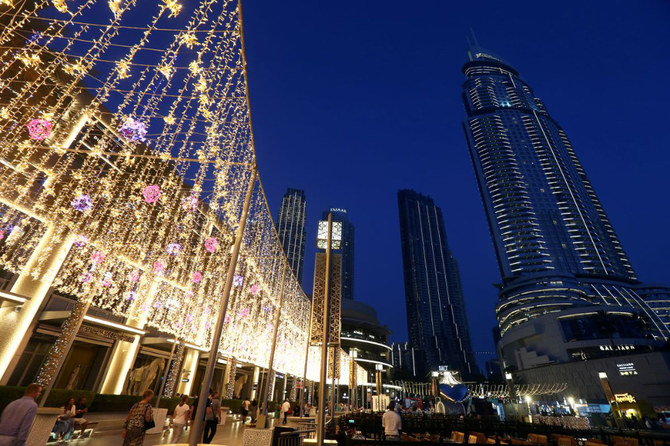
- ARAB NEWS
- 26 Apr 2024

Written in 2014, Henry Kissinger’s view on how world orders are formed has never been more apt.
The US former secretary of state wrote in his book World Order: “No truly ‘global world’ order has ever existed. What passes for order in our time was devised in Western Europe nearly four centuries ago, at a peace conference in the German region of Westphalia, conducted without the involvement or even the awareness of most other continents or civilizations.”
Today, globalization and the unprecedented pace of current affairs may establish the first true world economic order. One that may not be rooted in the West, but is perhaps shifting toward the East — with the Gulf proving to be a powerful catalyst in this move.
The Gulf’s largest economies, Saudi Arabia and the UAE, have all but snubbed US President Joe Biden’s approach to Russia over its conflict with Ukraine due to their dissatisfaction with the administration’s recent policies in the Middle East. The unwillingness of these states to answer Washington’s calls whilst hosting President Bashar El Assad and having talks with Presidents Vladimir Putin and Xi Jinping, explicitly signals these strained relations.
This comes as Gulf states have begun to form stronger ties with America’s economic rival, China. With the first China-Arab Summit set to take place in Saudi Arabia later in 2022, Beijing has proclaimed the goal of building a “China-Arab community with a shared future in the new era”, and this makes a whole lot of sense for the Gulf.
The pair complement one another, with China pursuing its Belt and Road initiative — an infrastructure program that seeks to connect Asia, Africa and Europe — and Gulf States looking for stronger ties across Asia.
Difficult relations between the US and the Middle East have set the stage for increased Chinese influence in the region. Moving forwards, China and the Gulf are reshaping their priorities, and their economic interdependence seems to be growing stronger.
But this is not entirely new territory. The Middle East has always been fertile ground for Chinese firms. Chinese companies are the GCC’s largest source of foreign investment, often handling major construction contracts. These include Qatar’s Lusail Stadium — the main venue of the 2022 FIFA World Cup — Emirati and Omani ports and industrial infrastructure, as well as Saudi Arabia’s high-speed rail line and Yanbu Refinery, among many others.
In January, GCC leaders arrived in China for a five-day conference with Chinese Minister of Foreign Affairs Wang Yi aimed at strengthening relations. The worlds’ second-largest economy — which is forecasted to overtake the US by 2028 — no doubt wants to secure low-priced oil supply from these major hydrocarbon market players. China is the world’s largest oil importer, and almost half of it comes from the GCC. Simultaneously, the GCC seeks projects that will help it diversify from its oil-dependent economies.
The parties are also in negotiations over a free trade agreement, which would solidify import and export ties. This is particularly important for the GCC as China is its largest trade partner. China’s Belt and Road initiative also stands to gain from the GCC’s strategic location at the crossroads of international trade routes. It is likely that energy will be the centerpiece of infrastructure development, with land and offshore pipelines connecting the MENA region to China and other countries. Investment for these projects will broaden financing channels between the GCC and China.
Faced with inconsistent US policies in the Middle East, the Gulf has embraced economic ties to China with open, yet careful, arms. While the West seems to have a case of Middle East fatigue, China’s infrastructure plans demonstrate commitment to the region.
Some may argue the Gulf’s apparent pivot to the East is a mere hedging tactic, a bargaining chip guarding their political and security interests. But it may also be a sign of a major realignment in economic alliances and regional power partnerships.
For decades the West has wielded a lot of power in the MENA region, often unchallenged by significant threats. But current realignments by Gulf nations may prompt shifts in global centers of economic activity, and may set a precedent for other rapidly emerging and powerful economies to branch out Eastward.
This is not a guarantee of a future world order built around China and the yuan. But this might be the fallout from the rough patch that US-Gulf relations have hit. Most long-term relationships go through tough times, but it is unclear whether couple’s therapy might do the trick this time. Particularly when the Gulf’s alternatives for future prosperity are increasingly desirable.
• Roupina Maalouf holds a dual degree in Economics and Political Science from the Lebanese American University. She discusses how politics and economics interact in global affairs.